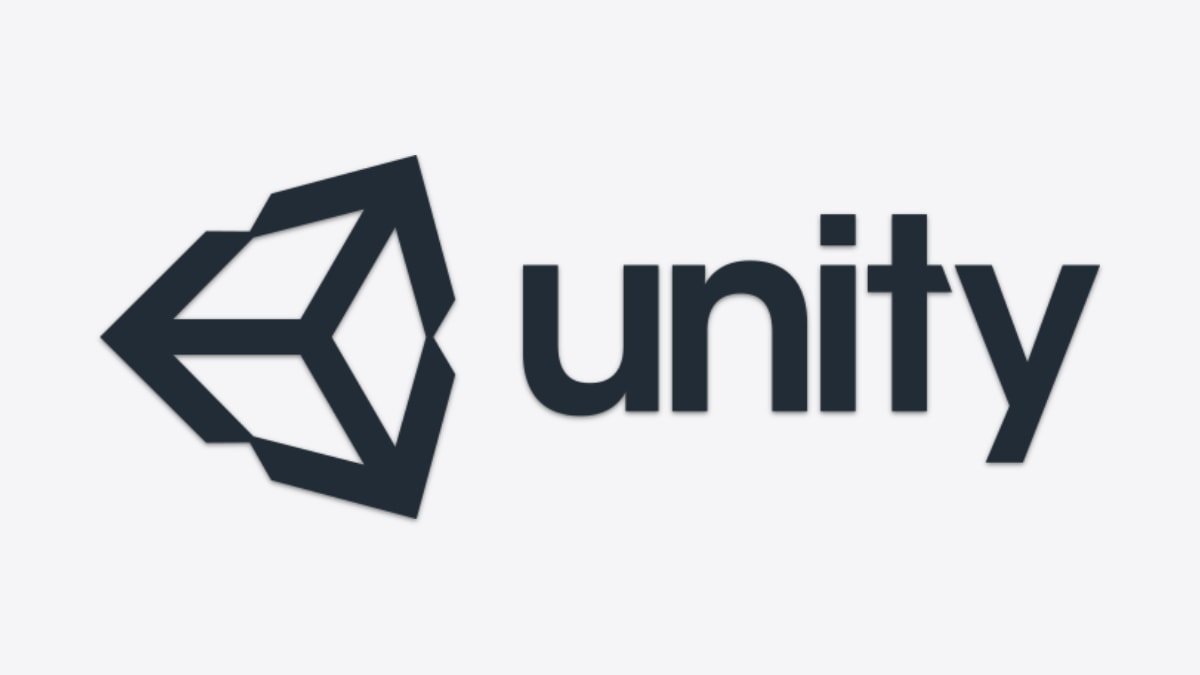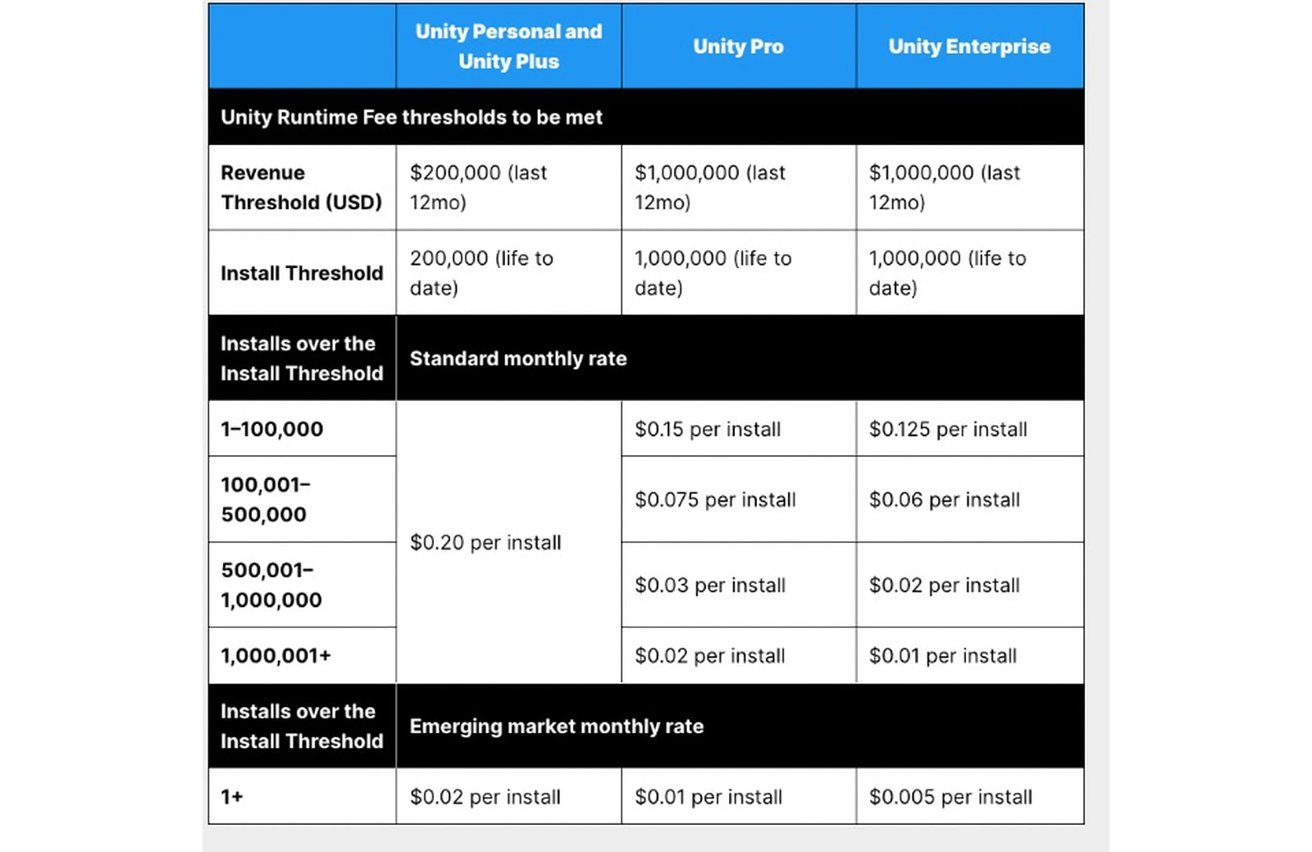The indie game development community is in turmoil following Unity's announcement of a new pricing system that will charge developers per user on initial download, instead of a flat engine licensing fee.
Unity is a cross-platform game development engine widely used to create 3D and 2D games and interactive experiences. It powers over 60% of top-grossing games on the App Store.
The company announced recently that on January 1, 2024, it will charge developers a new "Unity Runtime Fee." The thresholds for Unity Personal and Unity Plus users are set at $200,000 in revenue over the past 12 months and 200,000 lifetime installs.
Once surpassed, developers will be charged 20 cents per install. The new fee has received widespread criticism from indie developers, such as Tom Francis of Heat Signature.
"A partner who can and will change how much of your revenue you owe them after you've made and released your game needs to be avoided like the plague," Francis tweeted. "I hadn't realized they even legally could."
Developers fear the new fee system could cost them more than they earn from their games. The policy also affects games already released, leaving developers feeling trapped and foreseeing financial threats.
The new system could lead to potential abuse, including fraudulent installs, which could incur unjust developer charges. The policy also complicates participation with in-game giveaways, charity sales, and bundles, though Unity said that subscription services like Microsoft Game Pass wouldn't be affected.
Developers also want to understand how the new Unity Runtime Fee would apply to games that have been offered for free on platforms like Epic Games, as these apps have a substantial number of installs, potentially leading to significant fees under the new structure.
"I gather Epic's Unreal license is perpetual per-version, so whatever the deal is when you commit, you're guaranteed that forever if you're happy to stick with that version," Francis continued. "5% is more than Unity's new fees in most scenarios, but compared to a company that can help themselves to any amount of your money at any time, suddenly sounding more reasonable."
Unity has responded by stating that the fee will affect a small subset of users and is designed to impact only those who have successful games, generating revenue well above the outlined thresholds. However, the developer community remains skeptical, with many vowing to switch to other engines for their projects.
 Andrew Orr
Andrew Orr








-m.jpg)






 Charles Martin
Charles Martin
 Malcolm Owen
Malcolm Owen
 William Gallagher
William Gallagher

 Christine McKee
Christine McKee
 Wesley Hilliard
Wesley Hilliard










26 Comments
Remember when Apple was sent to court by the makers of this system because of the 30% fee asked by Apple to help pay for the infrastructure?
Apple should tell everyone complaining about this hypocrisy and let developers know they are actually getting a good deal.
Unity has had (or still has) an engine licensing fee? What's the cost of it?